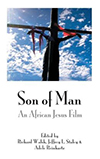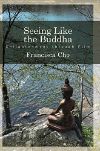A seat for faith at the last supper; thoughts on “Don’t Look Up” (USA, 2021)
 With a little coordination, my little family could have watched “Don’t Look Up” together. A few minutes after I sat down with my wife to watch it we realized that it may be of interest to the teenage son, who is interested in all sorts of technology and astronomy too. As the movie is partially about a coming comet we knew he could enjoy at least some of it. Turned out he was watching it concurrently with us in his room and was an hour ahead of us. The next morning we learned that the teenage daughter also watched it that night. I suspect her main reason to do so was to see the young heartthrob, Timothée Chalamet.
With a little coordination, my little family could have watched “Don’t Look Up” together. A few minutes after I sat down with my wife to watch it we realized that it may be of interest to the teenage son, who is interested in all sorts of technology and astronomy too. As the movie is partially about a coming comet we knew he could enjoy at least some of it. Turned out he was watching it concurrently with us in his room and was an hour ahead of us. The next morning we learned that the teenage daughter also watched it that night. I suspect her main reason to do so was to see the young heartthrob, Timothée Chalamet.
This little incident, meaning the atomization of even a nuclear family, is an example of the topics the movie is ridiculing. The film’s title directly refers to the fight over attention and our changing attitudes towards facts: as in who do we let control what we pay attention to and whose words do we accept as facts, even when just opening our eyes could establish what the facts are. Less explicitly, I feel it also points out that more and more of us barely look up from our screens. If we had, we could have watched the movie together and had a shared family experience. This way we ended up watching three separate movies: we saw a social commentary, the young man a technological comedy, and the young woman a star-studded (Leonardo DiCaprio, Jennifer Lawrence, Meryl Streep, Cate Blanchett, Timothée Chalamet, Ariana Grande…) downer.
A few days after the movie appeared on Netflix my Facebook exploded about it. Everybody had an opinion. Admittedly my circle is leaning towards the liberal, so I didn’t manage to see the full scale of reactions. My academically inclined friends were not impressed: they cited all sorts of reasons why it was not a good movie, including it was too hyperbolic, too long, its messages not subtle enough, holes in the plot, and so on. My environmentally and/or spiritually conscious friends were ecstatic as they saw it as a realistic movie of what might come that will help to shake the less conscious population into action. They tended to weep and laugh at the same time and watched it multiple times already.

The moment Yule (Timothée Chalamet) grabbed Kate Dibiasky’s (Jennifer Lawrence) hand and confirmed that he “got this”, he knew what to say.
I congratulate the filmmakers because they recognize and utilize what politicians learned decades ago and started to use as their main campaign tool the last decade: manipulating emotions is a more efficient strategy to get (re-)elected, than trying to influence the minds of the electorate. Based on the anecdotal evidence I gathered from Facebook it whipped up a lot of people’s emotions, which I think was one of the filmmakers’ intentions. While they showed us cynical politicians and “leaders”, who know precisely how to play the politics game–including blame, deflection, fear, and loathing–they also evoked a wide scale of emotions in the viewers. It could have been a doc- or mock-umentary, but with the loaded sarcasm and over-the-top storyline and performances, they intended to maximize the societal effects.
If you have read this far you may wonder why this post is on filmandreligion.com, what I or the movie have to say about religion. The answer rests in Yule’s character, who was raised in evangelical faith, left it behind, but when the world was ending he kind of returned to it. I was pleasantly surprised by how Yule’s faith was depicted. While the movie attacked the hypocrisy behind dozens of social norms, habits, and institutions it was kind to his religion. Yule, despite his young age, was shown to have the confidence, the internalized words, deep faith, and verbal tools to say a blessing at the last supper of an extended family, consisting mostly of (probably) secular people who felt the need to connect to a higher power at that time, but didn’t know how to. It is as if religion literally got a seat at the table of a world where the number of adherents is rapidly decreasing. I–who, while aware of the negative history of institutionalized religion, still think that its overall impact is more beneficial in people’s lives–am deeply appreciative that personal belief was taken seriously and was one of the instruments of peace in the final moments.
Yule not too gender-neutrally, yet beautifully said:
Dearest Father and Almighty Creator, we ask for Your grace tonight, despite our pride. Your forgiveness, despite our doubt. Most of all, Lord, we ask for Your love to soothe us through these dark times. May we face whatever is to come in Your divine will with courage and open hearts of acceptance. Amen.
Whether you believe in God or not a version of these words could strengthen anyone at dark times.
Links
- Official site/Netflix, Facebook page, IMDB summary: “Two low-level astronomers must go on a giant media tour to warn mankind of an approaching comet that will destroy planet Earth.”
- Trailer:









